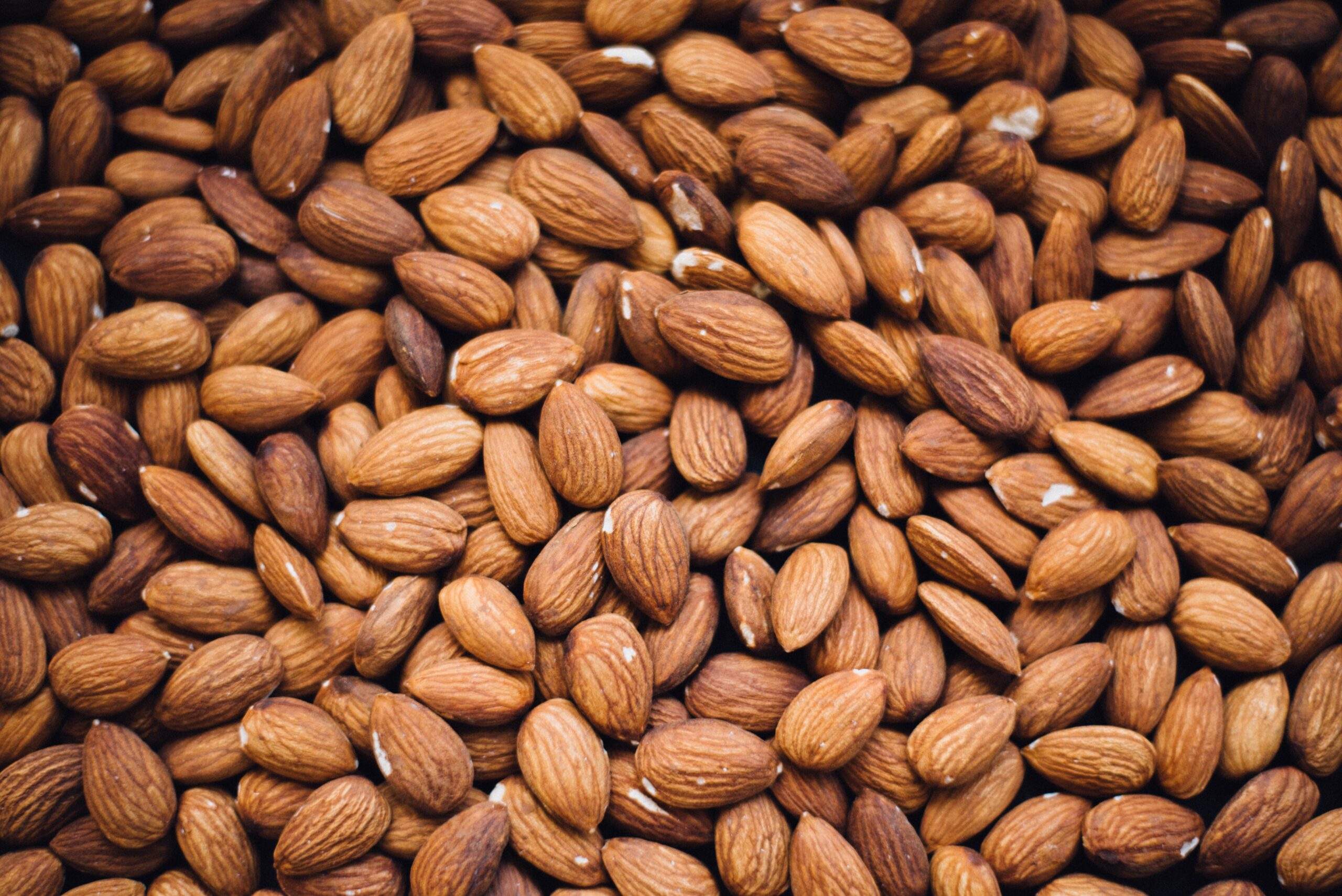So, you’ve been following the keto diet and have experienced significant weight loss. But now you’re wondering, what happens if you decide to stop? Is there a risk of gaining back all the weight you’ve worked so hard to lose? In this article, we’ll explore whether there’s a potential for weight regain after ending the keto diet and provide insights on how to maintain a healthy weight in the long run. So, let’s dive right in and uncover the truth about the post-keto weight gain!

Understanding the Keto Diet
Basics of the Keto diet
The Keto diet, short for Ketogenic diet, is a low-carb, high-fat diet that is designed to put your body in a state of ketosis. In this state, your body burns fat for energy instead of carbohydrates. The diet primarily focuses on consuming healthy fats, moderate amounts of protein, and a minimal amount of carbohydrates. Many people follow the Keto diet to promote weight loss and improve overall health.
Benefits of the Keto diet
The Keto diet offers several benefits beyond weight loss. One of the major advantages is its ability to regulate insulin and blood sugar levels. By reducing carbohydrate intake, the Keto diet can help stabilize insulin production, which is crucial for individuals with diabetes or insulin resistance. Additionally, the Keto diet has been found to increase mental clarity and focus, boost energy levels, and reduce inflammation in the body.
Constraints and challenges of the Keto diet
While the Keto diet has its advantages, it does come with some constraints and challenges. One of the primary challenges is the strict limitation on carbohydrate intake. This can make it difficult for individuals who are used to consuming a high-carb diet to adjust to the Keto lifestyle. Additionally, the restriction on certain food groups, such as fruits and whole grains, may result in nutrient deficiencies if not carefully planned and executed. Adhering to the Keto diet also requires careful meal planning, as many convenience foods and restaurant options are typically high in carbohydrates.
Weight Loss and the Keto Diet
Main role of carbs in the Keto diet
Carbohydrates play a significant role in the Keto diet. When you consume carbohydrates, your body breaks them down into glucose, which is the primary source of energy for the body. However, on a Keto diet, the intake of carbohydrates is minimized, which forces the body to seek alternative sources of energy, namely fat. By limiting carbohydrates, the body begins to burn its stored fat for fuel, resulting in weight loss.
How the Keto diet helps in weight loss
The Keto diet promotes weight loss through multiple mechanisms. First, by restricting carbohydrates and increasing fat intake, the diet helps control hunger and reduce overall caloric intake. Additionally, the high-fat content of the diet promotes satiety and helps individuals feel fuller for longer periods, reducing the temptation to snack or overeat. Furthermore, the metabolic state of ketosis induced by the diet increases the body’s fat-burning capabilities, leading to accelerated weight loss.
Long-term sustainability of losing weight on Keto
One common concern when it comes to the Keto diet is its long-term sustainability for weight loss. While the diet is effective for shedding pounds in the short term, some individuals find it challenging to maintain the strict restrictions and low carbohydrate intake over an extended period. Therefore, it is essential to have a plan in place to transition from the Keto diet to a more flexible and sustainable eating pattern to maintain weight loss effectively.
Discontinuing the Keto Diet
Reasons behind stopping the Keto diet
There are various reasons why someone may choose to discontinue the Keto diet. It could be due to achieving their weight loss goals, health concerns, or simply wanting to introduce more variety into their diet. Some individuals may also find it socially challenging to adhere to the diet in certain situations, such as attending social gatherings or dining out with friends and family.
Potential side effects of discontinuing Keto
When discontinuing the Keto diet, individuals may experience some side effects as their body readjusts to a higher carbohydrate intake. This can include gastrointestinal discomfort such as bloating, gas, and changes in bowel movements. It is essential to reintroduce carbohydrates gradually to minimize the potential discomfort and allow the body to adapt.
Steps to safely discontinue the Keto diet
To safely discontinue the Keto diet, it is crucial to gradually increase carbohydrate intake while maintaining a balanced and nutritious diet. Start by incorporating small portions of healthy carbohydrates, such as fruits, whole grains, and legumes, into your meals. Listen to your body and monitor any changes in energy levels or digestion. It may also be helpful to consult with a healthcare professional or a registered dietitian for personalized guidance during the transition phase.
Risk of Weight Gain After Stopping Keto
Factors contributing to potential weight gain
After stopping the Keto diet, there are several factors that may contribute to potential weight gain. One of the primary factors is an increase in calorie intake, especially if carbohydrate-rich foods are reintroduced without moderation. Additionally, if individuals resume their previous eating habits, which may have been high in processed foods and sugary snacks, weight gain can occur. Lack of physical activity and not addressing underlying emotional reasons for overeating can also play a role in weight regain.
Scientific explanations for weight gain
Scientifically, weight gain after stopping the Keto diet can be attributed to multiple factors. When carbohydrates are reintroduced, the body stores them as glycogen, which attracts water, resulting in temporary water weight gain. Additionally, carbohydrates can stimulate the release of insulin, which promotes fat storage. Lastly, if individuals resume consuming a higher calorie intake than what their body requires, excess calories can be stored as fat, leading to weight gain.
Likelihood and timelines of weight gain
The likelihood and timelines of weight gain after stopping the Keto diet can vary from person to person. Some individuals may experience rapid weight gain due to increased calorie intake and water retention, while others may notice slower weight gain over a more extended period. It is essential to remember that weight fluctuations are normal and can be influenced by various factors such as genetics, hormone levels, and overall lifestyle habits. Being mindful of your eating habits and maintaining an active lifestyle can help prevent significant weight gain.

Managing Weight after Keto
Maintaining a balanced diet post Keto
Once you have stopped the Keto diet, it is important to transition to a balanced and sustainable eating pattern. Focus on consuming a variety of nutrient-dense foods, including fruits, vegetables, whole grains, lean proteins, and healthy fats. Incorporate carbohydrates gradually and aim for well-rounded meals that provide all the essential vitamins, minerals, and macronutrients your body needs. Finding a balance between nutrients and portion sizes is key to managing weight effectively.
Significance of reintroducing carbs gradually
Reintroducing carbohydrates gradually after the Keto diet is crucial to prevent sudden spikes in blood sugar levels and minimize digestive discomfort. Slowly adding small portions of whole grains, fruits, and other healthy sources of carbohydrates allows the body to adjust and optimize its digestion and utilization of these nutrients. This gradual reintroduction also helps individuals gauge their tolerance for different types of carbohydrates and identify any specific sensitivities or allergies.
Role of physical activity in weight management
Physical activity plays a vital role in weight management, both during and after the Keto diet. Incorporating regular exercise into your routine helps burn calories, build muscle, and increase metabolism. Engaging in various activities, such as cardiovascular exercises, strength training, and flexibility exercises, can help improve overall fitness levels and support weight maintenance. It is important to find activities that you enjoy and that fit your lifestyle to ensure long-term adherence.
Successful Dietary Transitions
From Keto to other diet plans
Transitioning from the Keto diet to other eating plans should be done mindfully and with proper guidance. Understand the principles and goals of the new eating plan to ensure a smooth transition. For example, if transitioning to a Mediterranean-style diet, focus on incorporating more fruits, vegetables, whole grains, and healthy fats into your meals while gradually reducing the reliance on high-fat foods. Seek advice from a registered dietitian to help personalize the transition and address any specific concerns or nutritional needs.
Key nutrition elements to maintain
Regardless of the eating plan you transition to after Keto, there are key nutrition elements that should be maintained for overall health and weight management. These include consuming an adequate amount of protein for muscle maintenance and repair, ensuring sufficient intake of vitamins and minerals through a varied diet, and maintaining an appropriate calorie balance to meet your individual needs. Focusing on a wide range of whole, unprocessed foods and staying properly hydrated are also essential.
Balancing calorie intake and expenditure
Balancing calorie intake and expenditure is crucial for weight management when transitioning from the Keto diet. Calculate your daily energy needs based on factors such as age, sex, weight, activity level, and goals. Be mindful of portion sizes and aim to create a calorie deficit, if necessary, to continue losing weight or maintain a healthy weight. Regularly monitor your progress and make adjustments as needed to find the right balance between food intake and energy expenditure.

Life After Keto
Long-term effects of the Keto diet
The long-term effects of the Keto diet can vary depending on individual factors and how the diet was followed. Some individuals may choose to maintain a modified version of the diet to continue benefiting from its effects on weight management and overall health. However, it is important to consider the potential impacts on nutrient intake, long-term sustainability, and individual preferences when deciding whether to continue with the Keto diet in the long run.
Rollercoaster weight scenarios and how to manage them
It is common to experience weight fluctuations even after stopping the Keto diet. This can be due to factors such as changes in water retention, muscle gain, or slight variations in calorie intake. To manage these rollercoaster weight scenarios, it is essential to focus on long-term trends rather than short-term fluctuations. Keeping track of your weight, body measurements, and other indicators of health, such as energy levels and mood, can provide a more comprehensive picture of progress.
Creating a new nutritional lifestyle post Keto
Creating a new nutritional lifestyle after the Keto diet involves finding a healthy and balanced approach to eating that suits your individual needs and preferences. Incorporate a wide variety of foods, including fruits, vegetables, whole grains, lean proteins, and healthy fats. Identify and address any emotional or psychological factors that may have contributed to weight gain or challenges with weight management in the past. Remember, sustainable weight management is not about following a specific diet, but rather establishing lifelong healthy habits.
Expert Opinions on Stopping Keto
Views from nutritionists and dietitians
Nutritionists and dietitians have varying opinions on stopping the Keto diet. While some experts acknowledge the short-term benefits of the Keto diet for weight loss and insulin regulation, they emphasize the importance of a balanced and sustainable approach to eating in the long run. Many experts recommend transitioning from the Keto diet to a balanced eating pattern that includes a wide range of nutrient-dense foods from all food groups to support overall health and weight management.
Scientific research on Keto discontinuation
Scientific research on Keto diet discontinuation is limited, as most studies have focused on the initial effects and potential benefits of the diet. However, some studies have highlighted the potential challenges individuals may face when transitioning from the Keto diet, such as metabolic adaptations, changes in gut microbiota, and the risk of weight regain. More research is needed to fully understand the long-term effects and potential risks associated with discontinuing the Keto diet.
Debunking myths about stopping the Keto diet
There are several myths surrounding stopping the Keto diet that need to be debunked. One common misconception is that individuals will immediately gain back all the weight they lost while on the diet. While some weight regain may occur initially due to water weight and adjusted metabolism, it is possible to prevent significant weight gain by adopting a balanced eating pattern and incorporating regular physical activity. Another myth is that stopping the Keto diet will lead to a loss of all the health benefits gained, which is not necessarily true as long as a healthy eating plan is followed.
Overcoming the Fear of Weight Gain
Mental and emotional aspects of weight gain
Weight gain can evoke various mental and emotional responses, especially if you have previously struggled with body image or disordered eating patterns. It is important to address these feelings and seek support from trusted individuals or professionals. Remember that weight is not the sole determinant of health and focus on maintaining overall well-being rather than solely on the number on the scale. Emphasize self-care, body positivity, and the development of a healthy relationship with food and your body.
Developing a positive body image post Keto
Developing a positive body image post Keto involves shifting the focus from external appearance to overall health and well-being. Practice self-acceptance and body positivity by appreciating what your body is capable of and focusing on how you feel rather than how you look. Engage in activities that make you feel good and promote a healthy body image, such as exercise, self-care rituals, and surrounding yourself with positive influences. Remember that beauty and worth come in many different shapes and sizes.
Dealing with societal pressures and expectations
Societal pressures and expectations can significantly impact how we perceive our bodies and our relationship with food. It is important to recognize and challenge these external influences to prevent them from negatively affecting your self-esteem. Surround yourself with a supportive community that values health and well-being beyond societal beauty standards. Seek out resources and organizations that promote body positivity and advocate for a diverse portrayal of beauty. Focus on your personal goals and values rather than striving for an unrealistic and narrow ideal set by society.
Preventing Weight Gain After Keto
Strategies to evade regain of weight
To prevent weight gain after stopping the Keto diet, incorporate several strategies into your lifestyle. Focus on consuming a balanced and nutritious diet that includes a variety of foods from all food groups, emphasizing whole, unprocessed options whenever possible. Practice mindful eating by paying attention to hunger and fullness cues and eating in response to physical hunger rather than emotional triggers. Aim for regular physical activity that you enjoy and that aligns with your health and fitness goals. Establish a support system of friends, family, or professionals who can provide guidance and encouragement along the way.
Functional meal planning and preparation
Meal planning and preparation can play a crucial role in preventing weight gain after stopping the Keto diet. Plan your meals and snacks ahead of time to ensure a variety of balanced options. Include a mix of lean proteins, whole grains, fruits, vegetables, and healthy fats in your meals to promote satiety and meet nutrient needs. Prepare and portion meals in advance to avoid relying on unhealthy convenience options when hunger strikes. Experiment with new recipes and flavors to keep meals exciting and sustainable in the long term.
Sustaining progress made during the Keto diet
To sustain the progress made during the Keto diet, it is important to embrace a holistic approach to health and well-being. Focus on cultivating healthy habits, such as regular exercise, stress management, and prioritizing sleep. Continuously educate yourself about nutrition and make informed choices about your food intake. Seek support from professionals, such as dietitians or therapists, if needed, to work through any challenges or emotional barriers. Remember that sustainability is a lifelong journey, and each day is an opportunity to make choices that support your overall health and well-being.

